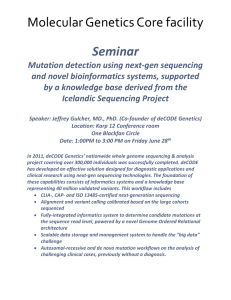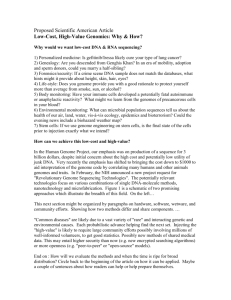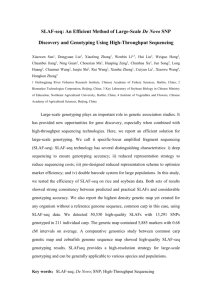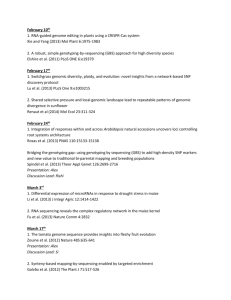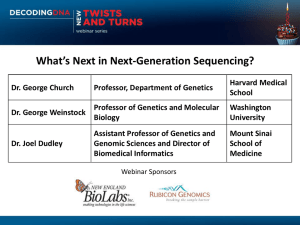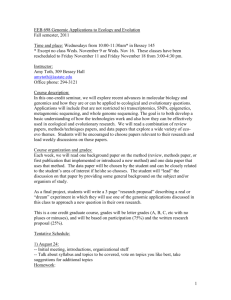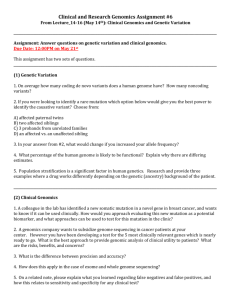Kick-Off for a unique collaboration on European Sequencing and
advertisement
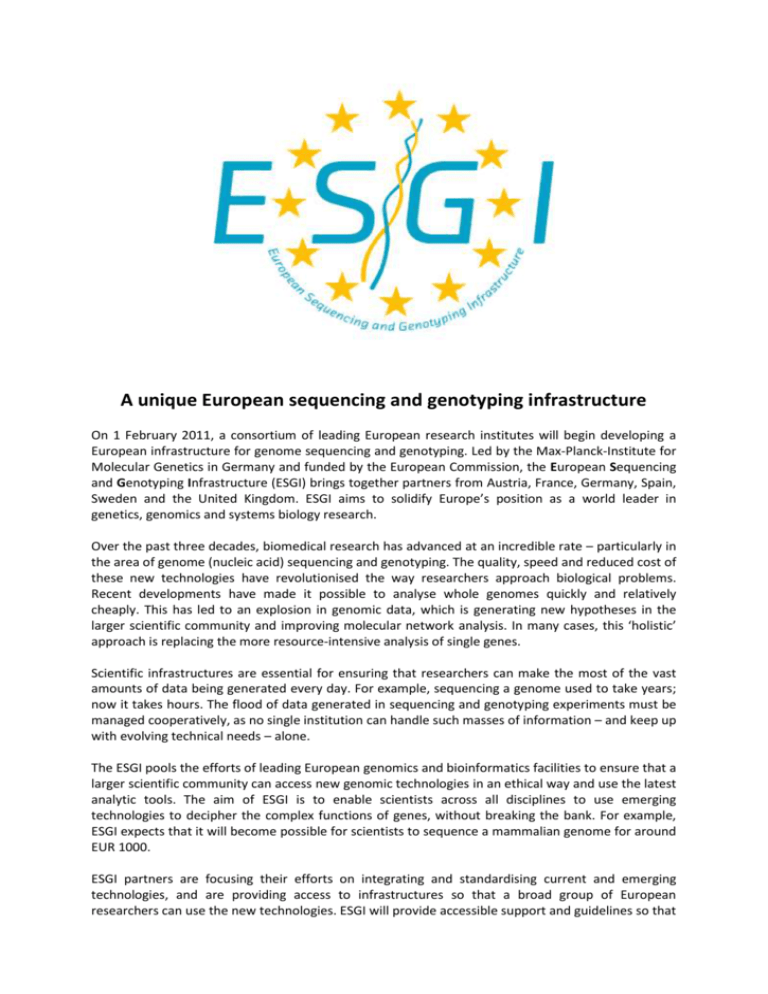
A unique European sequencing and genotyping infrastructure On 1 February 2011, a consortium of leading European research institutes will begin developing a European infrastructure for genome sequencing and genotyping. Led by the Max-Planck-Institute for Molecular Genetics in Germany and funded by the European Commission, the European Sequencing and Genotyping Infrastructure (ESGI) brings together partners from Austria, France, Germany, Spain, Sweden and the United Kingdom. ESGI aims to solidify Europe’s position as a world leader in genetics, genomics and systems biology research. Over the past three decades, biomedical research has advanced at an incredible rate – particularly in the area of genome (nucleic acid) sequencing and genotyping. The quality, speed and reduced cost of these new technologies have revolutionised the way researchers approach biological problems. Recent developments have made it possible to analyse whole genomes quickly and relatively cheaply. This has led to an explosion in genomic data, which is generating new hypotheses in the larger scientific community and improving molecular network analysis. In many cases, this ‘holistic’ approach is replacing the more resource-intensive analysis of single genes. Scientific infrastructures are essential for ensuring that researchers can make the most of the vast amounts of data being generated every day. For example, sequencing a genome used to take years; now it takes hours. The flood of data generated in sequencing and genotyping experiments must be managed cooperatively, as no single institution can handle such masses of information – and keep up with evolving technical needs – alone. The ESGI pools the efforts of leading European genomics and bioinformatics facilities to ensure that a larger scientific community can access new genomic technologies in an ethical way and use the latest analytic tools. The aim of ESGI is to enable scientists across all disciplines to use emerging technologies to decipher the complex functions of genes, without breaking the bank. For example, ESGI expects that it will become possible for scientists to sequence a mammalian genome for around EUR 1000. ESGI partners are focusing their efforts on integrating and standardising current and emerging technologies, and are providing access to infrastructures so that a broad group of European researchers can use the new technologies. ESGI will provide accessible support and guidelines so that users can interpret the data efficiently. Substantial efforts will also go into developing platforms for storing and distributing genetic and genomic data. In addition, cooperation with biobanks and a large number of major biomedical research projects will enhance ESGI – ensuring that ethical and social questions are addressed and preventing duplication of effort. "We are pleased to have gathered Europe's most powerful facilities and innovative researchers in nucleic acids and bioinformatics analysis for the ESGI infrastructure," said Dr Sascha Sauer, project coordinator and research group leader at the Max-Planck-Institute for Molecular Genetics. "The infrastructure is designed to further life sciences in Europe. We will focus on giving access to welldefined projects of external users to shed light on the molecular mechanisms of common diseases and underlying gene regulation processes, as well as the implementation of emerging nucleic acid analysis technologies to develop new approaches in diagnostics, drug treatment, and food production. The ESGI project highlights Europe's strong heritage and excellence in genomics and life sciences." The four-year project combines the efforts of: Max-Planck-Institute for Molecular Genetics (Germany); Christian-Albrechts University Kiel (Germany); the Wellcome Trust Sanger Institute (UK), the European Bioinformatics Institute (UK), CEA-IG/Centre National de Génotypage (France); INSERM, Toulouse (France); PCB/Centro Nacional de Analisis Genómico (Spain); CEB/Centre de Regulació Genòmica (Spain); Uppsala University (Sweden); and the Medical University of Graz (Austria). The project is managed by GABO:milliarium, a German SME. Proposals for research projects to access the ESGI can be submitted online as of 15 March 2011 (http://www.esgi-infrastructure.eu). Information on the application and evaluation procedure is available, and interested researchers are welcome to get in touch with Dr. Sascha Sauer or Daniela Schneider (info@esgi-infrastructure.eu). ENDS This project receives funding from the European Community’s Seventh Framework Programme [FP7/2007-2011] under grant agreement n° 262055 (ESGI).
